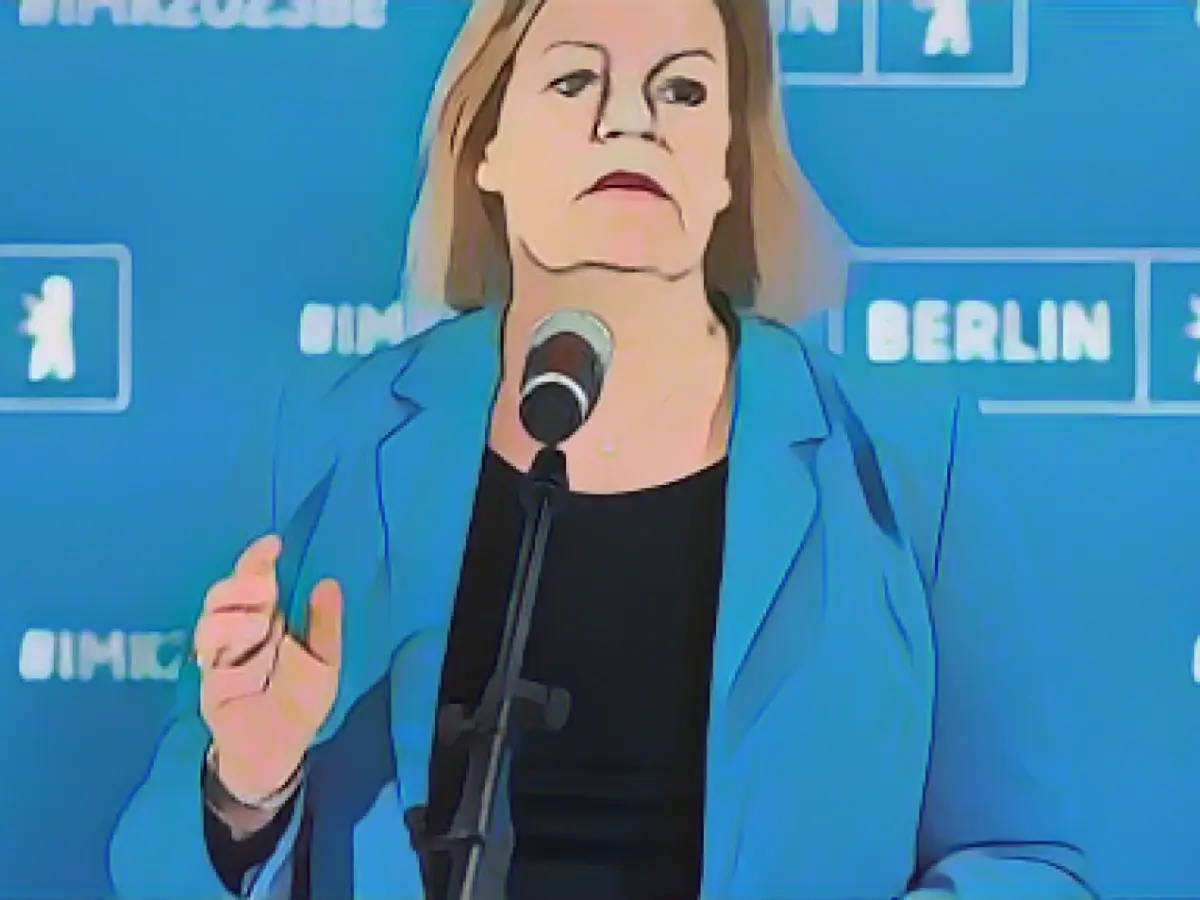Federal Interior Minister Faeser Extends Border Controls Until February 2023
German Federal Interior Minister Nancy Faeser has announced an extension of border controls with Poland, the Czech Republic, and Switzerland beyond December 15. The SPD politician spoke to the "Rheinische Post," stating that their strategies are working against the ruthless human trafficking industry that endangers countless lives. Stationary and mobile controls are crucial to halt unlawful immigration into Germany and alleviate the burden on local authorities.
Faeser extended border controls on December 5, with the Interior Ministry reporting over 3,300 unauthorized entries detected and 1,100 prevented since their implementation on October 16. According to a spokesperson, these measures have proved their efficacy and warrant continuation presently.
Andreas Roßkopf, representing the federal police at the police union, disagreed with Faeser's perspective in an interview with the "Rheinische Post." Roßkopf suggested that police resources could be better allocated to urban security and resolve the asylum issue within the EU framework rather than maintaining thousands of officers at the border. Germany's security situation is of significant concern.
Extended EU border controls in Europe (English)
Additional Insights:
The EU Commission's stance on border control policies, including Germany's extended border controls with neighboring countries, is multifaceted:
- Existing EU Funding Policies:
- The EU funds digital border surveillance and management systems but does not fund physical barriers like fences or walls.
- Possible Policy Shift:
- Due to political pressures, there is a chance the EU Commission could revise its stance on border management, with Commissioner for Migration Magnus Brunner calling for reassessment.
- Funding Regulations:
- The EU Border Management and Visa Policy Instrument (BMVI) provides €6.4 billion for 2021–2027, exclusively for digital systems.
- Human Rights Concerns:
- Concerns have been raised over the potential misuse of EU funds for activities that could violate human rights, such as documented pushbacks in countries like Greece.
- Upcoming Proposals:
- The EU Commission will propose a new Common Approach on Returns, including plans to augment Frontex staff and broaden its role in coordinating returns, but without explicit funding for physical barriers.
- Germany's Extended Border Controls:
- Germany's extended controls are intended to reduce irregular migration and cross-border crime, in compliance with EU law and supported by Faeser.
In conclusion, while the EU Commission does not currently fund physical barriers, there is potential for a policy shift due to political pressures. Germany's extended border controls, which aim to combat illegal immigration and criminal activity, are not directly implicated by the EU Commission's existing policies but form part of broader discussions on border security and management.








